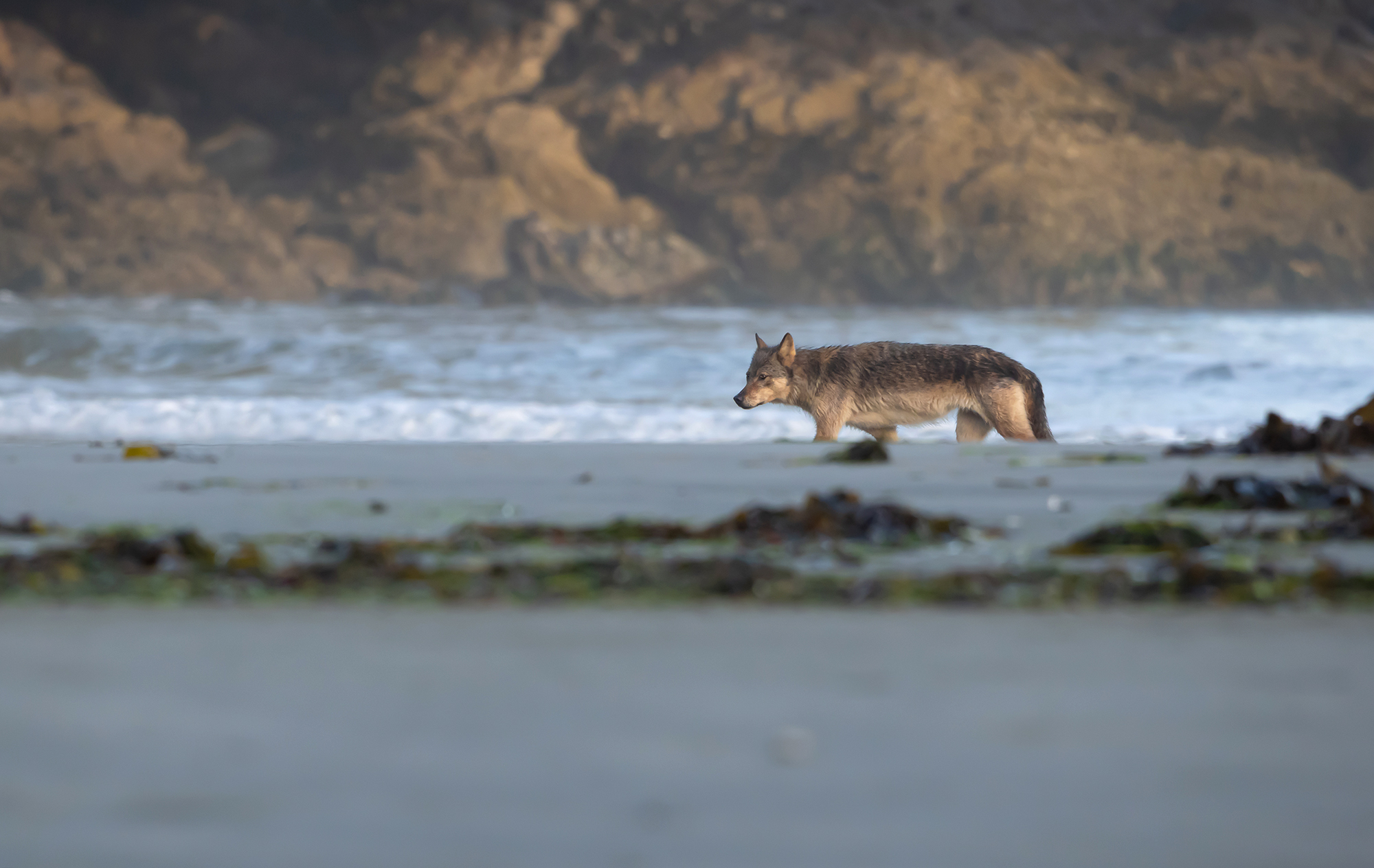A hunting outfitter in British Columbia is facing international outrage after the web developer he hired to build his company’s website used photos of a famous wolf on the page outlining their wolf hunting services.
Terminus Mountain Outfitters offers hunts for moose, stone sheep, elk, and mountain goats, in addition to a variety of combo hunts. Until the controversy broke, they also offered guided wolf hunts on the website. But that page was taken down after wildlife photographer Cheryl Alexander found her photograph of “Takaya,” a coastal wolf who became popular around the world throughout the 2010s, published on it, The Guardian reports.
“[A web design company] chose some live wildlife photos to use on the [website],” the owner of Terminus told The Guardian. (A man named Craig Kiselbach is listed as the owner on Terminus’ website.) “July 27th I was contacted by a disgruntled person upset about a wolf picture that they recognized as a wolf named Takaya. I had no idea of the story behind this wolf or even which of the three pictures on my website was of Takaya. I asked my web developer … to simply remove all three of the photos. July 29th they were removed. Neither I nor my web developer meant to offend anyone.”
Even after the photos were taken down, the aftermath continued for the outfitter.
“Unfortunately, because of the media attention we are now getting emails that are threatening and quite angry when we had nothing to do with the live pictures chosen. We are a legal family-run business.”
Takaya was a coastal wolf that lived in and around the small western islands of British Columbia. Members of the Songhees First Nations, who occupy the island of Victoria and surrounding smaller islands, gave the wolf the name. It means “wolf” in their language of Lekwungen. A few hundred coastal wolves live on and around Victoria and Vancouver Island, consuming a diet of salmon, shellfish, seals, and other marine protein sources.
Takaya drew an immense amount of attention when researchers realized he was living on the small islands alone. As was the case with the life and death of a California mountain lion known as P-22, the public anthropomorphized the wolf, turning the animal into a symbol of survival and loneliness. Tourists began traveling around the islands in droves, hoping to catch a glimpse of the wolf. One couple ignored the rules of the island and brought their dogs, prompting an emergency extraction when a different wolf started following them. One such close observer was Alexander, who closely photographed and filmed Takaya, even admitting in one article to getting within 3 feet of the wolf at one point — an encounter that any wildlife biologist would deem way too close for the safety of either party.
“Remain at least 100 yards away when watching or photographing [wolves],” the Oregon Department of Fish and Wildlife writes on its website. “Wolves are wary of people; but they can lose their fear of humans when they become accustomed to them.”
Takaya ended up on mainland Vancouver in January 2020, navigating the dense urban area. Conservation officers tranquilized him and relocated him to the west coast of Vancouver Island, a rugged area over 100 miles from the island the wolf had been living on. A hunter killed Takaya in March 2020 when the wolf approached his dogs, sparking outrage. That outrage resurfaced when Alexander’s photos recently ended up on Terminus’ website.
Read Next: Colorado Green-Lights Lethal Management of Gray Wolves, Under Certain Conditions
Some 8,500 wolves live in British Columbia. They are not a protected species and are subject to liberal hunting regulations. The B.C. government has spent over $10 million on aerial culls as part of the caribou recovery program since 2014, CBC reports.

